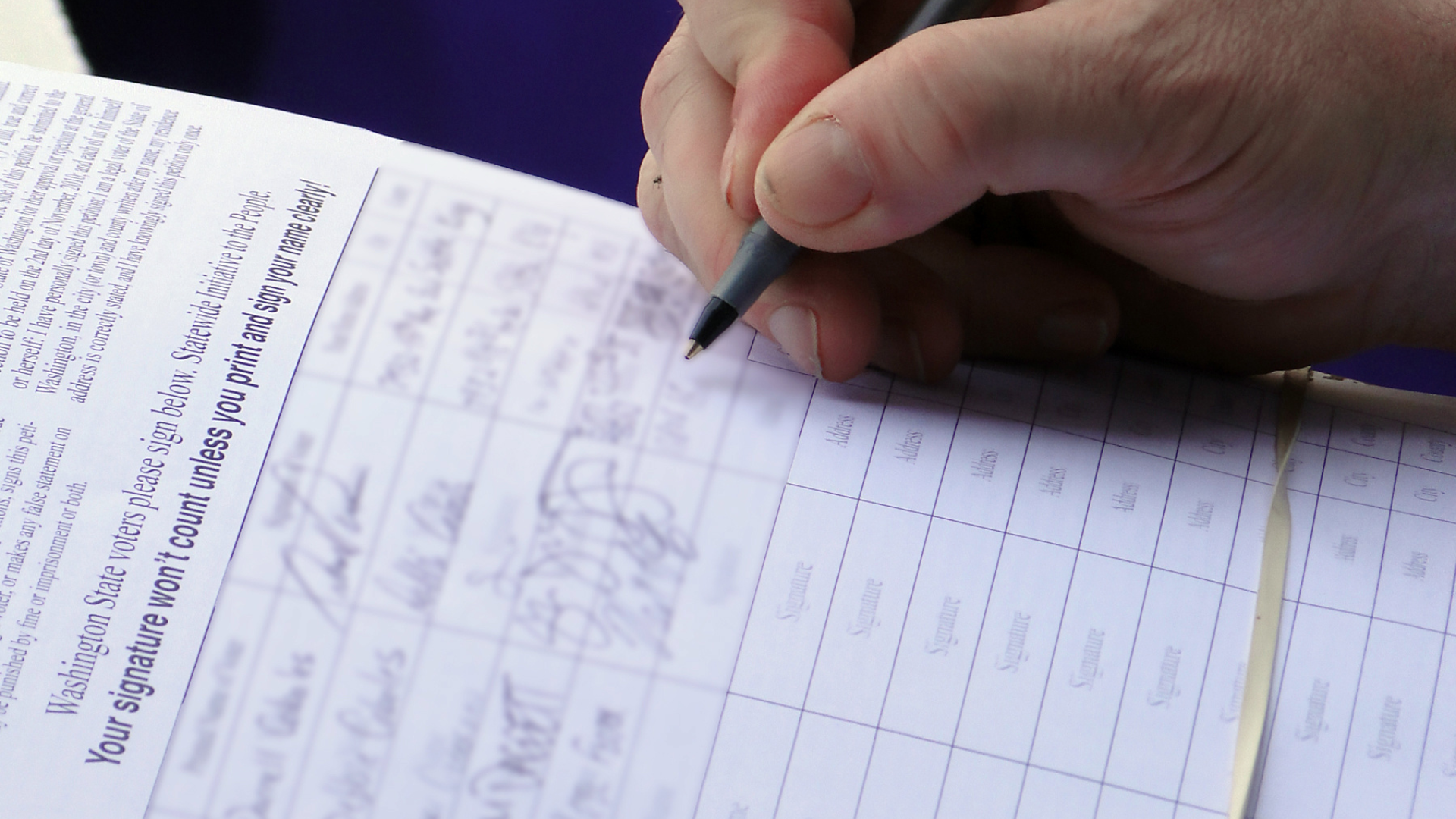How Does the State Protect Signatures from Potential Fraud?

During the 2024 GOP Primary Election, accusations have surfaced suggesting that a significant number of signatures collected for candidates to gain access to the ballot were likely fraudulent. These claims have raised concerns about the integrity of the signature collection process. While there have been instances of signature fraud,, one consistent pattern remains: fraudulent signatures are detected, and they are not included in the final count. When widespread fraud is discovered, it can lead to the failure of a candidate, referendum, or initiative if the valid signatures fall short of the required threshold.
How Fraud is Caught
Internal Validation
Internal validation is a critical step in ensuring the authenticity of collected signatures. Signature gathering companies hire third-party vendors to double-check signatures before they are submitted to state or county offices for official counting. These vendors are neutral parties with no direct ties to the success or failure of the campaign. Their primary role is to verify that the signatures are from registered voters and to check for signs of fraud.
Staff and directors involved in internal validation are typically trained to spot forgeries. If fraudulent signatures are identified, the company will contact the relevant state or county office to ensure that these signatures are not officially counted. This proactive approach helps prevent forged signatures from being included in the final tally. Additionally, the Attorney General’s office is notified of the accusations, in order to initiate an investigation into the canvassers responsible for the fraud, potentially leading to criminal prosecution.
It is important to note that signature gathering companies do not have access to any databases containing signatures. Their validation processes rely on training and expertise in identifying potential fraud through handwriting analysis rather than cross-referencing with official signature records.
State Validation Process
After internal validation, the state or county offices conduct their own thorough checks on the submitted signatures. There are multiple reasons why a signature might not be counted, one of which is the “signature does not match” category. The state maintains a database of signatures from registered voters, primarily collected from driver’s licenses, which enables clerks to verify the authenticity of each signature. If a signature does not match the records, it is immediately discarded from the count. This process ensures that only legitimate signatures are considered, maintaining the integrity of the election process.
Criminal Prosecution for Signature Forgery
Forgery of signatures in the signature gathering process is a serious offense and is considered a felony. When fraudulent signatures are detected, the case is referred to the Attorney General’s office for investigation. Those found guilty of forging signatures face severe legal consequences, including felony charges. The threat of criminal prosecution serves as a significant deterrent to potential fraudsters and underscores the importance of maintaining the integrity of the electoral process. By treating signature forgery as a felony, the state reinforces the seriousness of the offense and ensures that those who attempt to undermine the democratic process are held accountable.
The Importance of Fail-Safes
The various fail-safes in place significantly reduce the likelihood of fraudulent signatures affecting the outcome of an election. Internal and state validation processes are designed to catch and remove forgeries before they can impact the final count. These measures ensure that the signature gathering process remains a vital facet of the democratic system, allowing Utahns to have a choice in selecting their nominees for legislative offices.
In conclusion, while accusations of fraud in signature collection for ballot access do arise, the robust validation processes in place are highly effective at detecting and preventing fraudulent signatures from influencing election outcomes. These safeguards help maintain the integrity of the electoral process, ensuring that the will of the people is accurately represented.